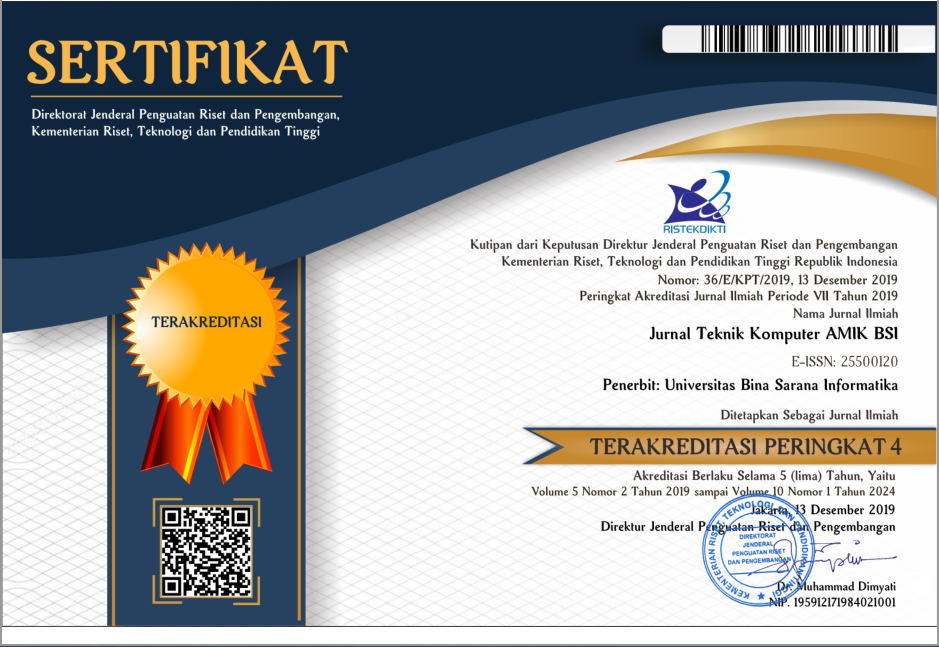ANALISA PENILAIAN KINERJA KARYAWAN DENGAN METODE FUZZY SIMPLE ADDITIVE WEIGHTING Pada PT. Unilever Indonesia Tbk Skin Deo Factory SBU Production Tube
Abstract
Abstract - ssessment of employee performance is critical to future evaluation and planning of the company. Employee performance appraisal is absolutely done to know the achievement that will be achieved by every employee. Whether the achievement is good, enough or less. The purpose of this study is to assist companies in determining the assessment of employees who are objective. In the discussion, there are differences in the ranking done manually and the FSAW method with three variables are work quality, work skills and attendance. Conclusion with Fuzzy simple Additive Weighting (FSAW) method can produce accurate and fast information to satisfy employees to improve their performance.
Keywords: Employee, FSAW, Employee Performance
Full Text:
PDFReferences
Dessler, Gary. Manajemen Sumber Daya Manusia Edisi 14. Jakarta: Salemba Empat, 2015.
Kusumadewi, Sri and Hari Purnomo. Aplikasi Logika Fuzzy Untuk Mendukung Keputusan . Yogyakarta: Graha Ilmu, 2010.
Maulana, Much. Rifqi. "Penilaian Kinerja Karyawan Di IFUN Jaya Textile Dengan Metode Fuzzy Simple Additive Weighied." Jurnal Ilmiah ICTECH Vol. X No. 1 (2012): 1-12.
Robbins, Stephen P. Perilaku Organisasi . Jakarta: PT Indeks, Kelompok Gramedia, 2006.
Savitri, Irma Ayu and dkk. "Penilaian Kinerja Karyawan dengan Model Fuzzy Multi Attribute Decison Making Metode Simple Additive Weighting (Stdi Kasus Rumah Makan Mie Kober Setan Malang)." Jurnal Universits Brawijaya Malang (2014): 1-8.
Sugiyono. Metode Penelitian Pendidikan (Pendekatan Kuantitatif, Kualtitatif dan R&D). Bandung: Penerbit Alfabeta, 2015.
Widodo, Prabowo Pudjo and Rahmadya Trias Handayanto. Penerapan Soft Computing Dengan Matlab. Bandung: Rekayasa Sains, 2012.
DOI: https://doi.org/10.31294/jtk.v4i1.2546
Copyright (c) 2018 Elik Yuli Ariato, Fernando B Siahaan

This work is licensed under a Creative Commons Attribution-ShareAlike 4.0 International License.
ISSN: 2442-2436 (print), and 2550-0120











